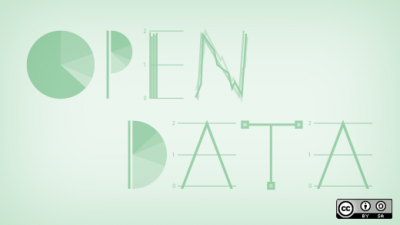Anyone who has ever tackled the task of compiling a comprehensive CV – say of a researcher with a common last name who has published over multiple decades while working at several different institutions – knows that this is no easy task. Below are some reasons for the complexity, and some solutions for making the process more accurate and less daunting for everyone.
How did we get here?
Everyone involved in the research publication process has contributed at some time and in some way to this problem:
- Authors who haven’t been consistent about the formatting of their name (or formatting of their institutional affiliation) when submitting their manuscripts for publication or have not provided their ORCID iD when prompted by the manuscript submission system;
- Publishers who don’t provide database producers with full author name information (for example, only providing initials for the authors’ first and middle initials) or only ask for one co-author’s ORCID iD or do not require provision of an ORCID iD at all;
- Database producers, like NLM’s PubMed, who may have not been consistent over time regarding how they handle adding the author information to their database records (more on that below).
And as with any structured database, information retrieval is only ever as good as the quality and extent of information contained in the database. In the case of PubMed, the quality control at NLM has always been top notch, but the extent of indexing certain fields (like the Author Name filed) has varied over time as their cataloging policies have evolved.
For example:
- The number of personal author names included on a record has evolved considerably. The comprehensive overview of the NLM policy related to author names in MEDLINE states, among many other changes, that:
- “For citations created from 1966-1983 October, NLM included all authors.
- For citations created from October 29, 1983, personal authors were limited to a maximum of 10.
- Effective with 1996 date of publication, the personal author limit was raised to a maximum of 25 (i.e., the first 24 and the last author; author #25 up to the last author were omitted).
- Effective with 2000 date of publication, the personal author limit was removed.”
- Prior to 2002, full author names were not included on PubMed citations.
- In March 2008, NLM started including the individual names associated with group authors/study collaborators in MEDLINE/PubMed;
- In December 2013, NLM started including the “Author Affiliations for all Authors, Corporate Authors and Collaborators in PubMed if the data are supplied by publishers in their XML submissions for MEDLINE indexed journals”;
- Before October 1, 2013, “NLM policy was to carry affiliation for the first author only, quality control the data, and edit the field to add “USA” or e-mail address as appropriate.”
- In 2014, NLM started accepting “author identifiers from outside organizations like ORCID when supplied to us by publishers with citation data”.
The take-home message from these cataloging details is that searching in PubMed will therefore need to be adjusted accordingly, depending on the publication dates of the author citations needed to be identified. Furthermore, authors themselves should realize that they are very much in control over what information ends up in the PubMed record since it all starts with the information that they themselves provide at the point of the manuscript submission to a journal publisher.
In fact, a new tool has recently been developed by cancer researchers at the National Cancer Institute called the AuthorArranger that can help authors provide more complete/accurate information to publishers at the time of manuscript submission. “AuthorArranger was created by Mitchell Machiela and Geoffrey Tobias in collaboration with the NCI Center for Biomedical Informatics and Information (CBIIT). Support for AuthorArranger comes from the 2018 DCEG Informatic Tool Challenge.”
From their website:
“AuthorArranger is a free web tool designed to help authors of research manuscripts automatically generate correctly formatted title pages for manuscript journal submission in a fraction of the time it takes to create the pages manually. Whether your manuscript has 20 authors or 200, AuthorArranger can save you time and resources by helping you conquer journal title pages in seconds.
Simply upload a spreadsheet containing author details ordered by author contribution, or download AuthorArranger’s easy-to-follow spreadsheet template and populate it with author and affiliation details. Either way, once your author information is uploaded AuthorArranger will allow you to make format choices based on the submission rules of the journal. When finished, you get a downloadable and formatted document that has all your authors and affiliations arranged for journal submission.”
The AuthorArranger tool was featured in a recent Cell Press “CrossTalk” blogpost.
For help with Author Name searching, manuscript submission, or training on Updating Scientific CVs – just Ask Us!
 As a result of the COVID-19 pandemic, many researchers with limited access to their laboratories have been turning to publicly available datasets with which they can run their own analysis, provide their own insights, or combine with their original research data to identify new trends. While the remote-work model creates plenty of challenges for researchers, it also presents a unique opportunity to highlight the
As a result of the COVID-19 pandemic, many researchers with limited access to their laboratories have been turning to publicly available datasets with which they can run their own analysis, provide their own insights, or combine with their original research data to identify new trends. While the remote-work model creates plenty of challenges for researchers, it also presents a unique opportunity to highlight the 